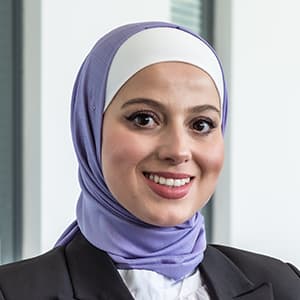Loughborough provides a welcoming and supportive place to succeed in education and achieve your goals.
PhD title: Developing Benchmarking and Optimisation Models to Assess and Improve the Performance of the Wastewater Infrastructure.
Tell us about your research.
During my PhD I have worked on two main research ideas, both related to the performance of wastewater infrastructure. Given my engineering background while also being supervised by Professor David Saal – a professor in microeconomics at Loughborough Business School – we have worked together to harmonise our multidisciplinary skills and develop hybrid methodologies to present novel research and contributions to the related literature.
In the first piece of work, we designed a hybrid framework based on mathematical optimisation modelling and cost-benefit analysis to optimise and assess an infrastructural transition scheme via consolidations of small treatment facilities, aimed at saving operating costs. Hence, a heuristic algorithm has been developed to solve the models with the support of Geographic Information System-based analyses. A real case study was conducted to demonstrate a proof-of-concept using databases related to Anglian Water Services Ltd, a service provider in England. The approach has been validated as an effective infrastructural transition scenario-planning tool which can provide a foresight for decision makers about critical strategic changes on infrastructure, required to maintain an efficient service for the long term.
For the second part, we developed a whole-system econometric benchmarking model while exploring the significant factors which influence the whole-system economic performance from both the immediate and the remote environment, as well as considering the interactions between subsystems. A case study conducted in Japan has shown improvement in our cost predictions as compared to the current cost benchmark adopted by the Ministry of Internal Affairs and Communication in Japan. The research findings provide evidence to policymakers for the importance of involving the effect of the operating environment characteristics and the subsystems’ interactions to ensure an effective benchmarking process.
What inspired you to continue onto further study?
I’m passionate about science and I’ve always been ambitious for continuous learning so I can keep my knowledge up to date. I enjoy applying my theoretical knowledge on real-world applications to make impact on the ground.
What impact do you hope your research makes?
Based on my research goals, I believe that if my findings were adopted by relevant stakeholders, there will be a positive contribution to the sixth Sustainable Development Goal (SDG), which is to ensure the availability and sustainability of clean water and sanitation for all.
What did you do before your PhD?
I had completed my bachelor’s degree in industrial engineering, and then I took a master’s degree in engineering management.
Why did you decide to come to Loughborough University?
I followed my husband’s steps, who did his PhD also at Loughborough University, and for the last 10 years he was an academic visitor at the University conducting further research. This has supported him to grow in his current career as an associate professor/reader. So he was a good example to me for the support and resources that Loughborough University offers its students and alumni.
Has your research been published?
I have developed my PhD research to be a thesis by concurrent publications, so I currently have my chapter drafted as publishable articles. Once I finalise my writing up, I’m intending to submit three papers in three different journals related to different topics given the applied multidisciplinary approach. But I have so far published two papers from the work I have done during my master’s studies.
How are you funding your PhD?
The tuition fees for my PhD are funded through a studentship I have received from Loughborough University which I was given when I applied for a funded project that was advertised on the University website when looking for PhD opportunities.
What are some of the exciting things you’ve taken part in?
Exciting things I do with my research include participating in local and international conferences to create a good network and to discuss and receive feedback from other researchers with similar interests; Loughborough Business School has continuously supported me with the budgetary needs. Also, given that Loughborough University is the best in the world for sports-related subjects*, I have grabbed the chance to benefit from the excellent sports facilities available on campus. I’ve been doing various fitness classes given by superb Les Mills instructors, and I’d like to say a big thank you to the most amazing instructors Paulina and Karen who teach their classes with passion and enthusiasm.
*QS World University Rankings by Subject 2023
What are your plans for the future?
I’m currently looking for a good opportunity to grow my PhD research, to build on the findings in extended research, to develop it so I can create an impact case.
How do you think completing your research at Loughborough will help you achieve these ambitions?
I believe in Loughborough University as a supportive environment, so I will be looking for a postdoc opportunity or a funded collaboration with industry.
What advice would you give to someone thinking of undertaking a PhD at Loughborough?
To have no doubt about considering Loughborough as the right place to come to, whatever the circumstances are; Loughborough provides a welcoming and supportive place to succeed in education and achieve your goals.
What is your favourite thing about being a Loughborough student?
I’m always proud to introduce myself locally and internationally as a Loughborough student, always receive good care and support, and the availability of the different facilities on campus makes my life much easier, not to forget the excellent sports environment which always encourages me to be active and healthy.
I have also taken part in student panels to share my opinions and ideas regarding different topics, and helped establish the parents network as a mother conducting my PhD while taking care of two kids. I’ve also enjoyed trips with the PhD Social and Support Network and numerous training workshops organised by the Doctoral College.
